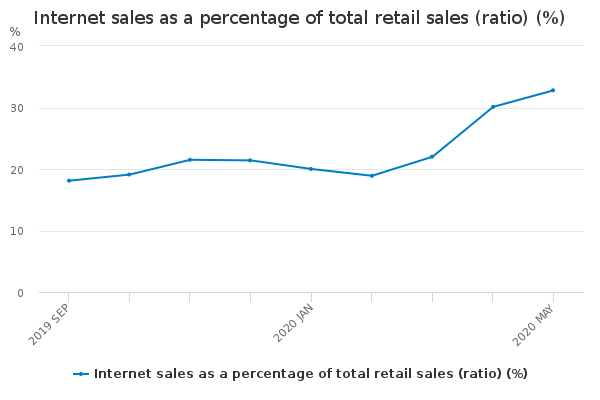
The COVID 19 pandemic has already had an impact and will continue to have an impact on much of what we do and how we do it – as businesses, and as individuals.
The crisis has accelerated a number of immediate behaviour shifts by businesses and by individuals. These shifts would otherwise have occurred over an extended period and in a more controlled way
- Years’ worth of change has occurred in a matter of weeks as necessity has driven innovation, and companies have had to adapt to survive. The results are here to stay and are set to continue at a faster rate for some time.
For business :
- Much of this accelerated change is in the way and frequency that we use technology and the rapid digitisation of manual processes, particularly those involving human interaction.
- Many businesses had some level of digitisation pre-crisis, with plans for future investment to increase digital investments. The crisis has brought forward and forced the rapid introduction of additional at a lightning rate – driven by necessity and survival. Those businesses gently adopting and gradually increasing their digitisation programmes have been “hyper-driven” and propelled to a new future landscape beyond their original 2020-21 horizons.
Rapid digitisation shifts for businesses and individuals in progress
For individuals :
- Many were frequent and competent on-line consumers and researchers for a range of goods, services and entertainment. Post-crisis, the range and type of services and goods they buy on-line has expanded – converting many convenience and in-store grocery buyers to on-line/home delivered consumers overnight and at volume. The use of local suppliers and service providers has grown, and shoppers are valuing local eco-systems to service their needs more responsively rather than reverting to the shopping patterns before the crisis.
- This group are also now exercising on-line, home-schooling on-line, and increasing their on-line activity at a level un-imaginable pre-crisis. While many were competent on-line buyers previously – few were the on-line video conferencing experts and savvy operators, or the home-working masters they have become in a short space of time. These changes will remain and will grow incrementally. There will be no return to pre-crisis routines and inefficient ways of working and living.
Internet sales as a percentage of total retail sales – have gone from less than 20% pre-crisis to 33% post crisis – a 65% increase. Source: ONS (DSR Digital Transformation 2020 Survey)
Source: ONS (DSR Digital Transformation 2020 Survey)
These changes – enabled and driven by technology and digital capability, are brought about by a combination of necessity and useable, exploitable, and opportunistically available digital “stuff”. The necessity and drive to take on board the digitally-enabled new world – paradoxically also allows business and individuals to expand, grow and be creative in ways they could not have previously envisioned.
The impact of the crisis and the resulting increase in on-line activity is having a substantial impact on economies, sectors, and consumers. This is driving the need for accelerated digitisation and planned improvements to online customer service, building customer loyalty and engagement with brands. Digital commerce has traditionally been more product and basket driven; the future will mean building stronger relationships with customers. Service and content management, finding new ways of engagement, and membership with these customers will become paramount.
Digitisation – opportunity and necessity driven
- More than 75% of companies plan to accelerate digital transformation now.
- “Individuals – one-third of consumers plan to increase online spending, especially those living in those areas most affected by the crisis and in urban areas.”
So what does this mean for business?:
Digitisation plans and investment will need to accelerate – as a necessity to survive and also to thrive in the “new world”. Those that do not adopt, and at pace, will be left behind.
In managing the acceleration of their digital plans, businesses will need to adapt and review their plans and the actions required to implement them, based on sector-specific impacts and opportunities.
This will involve:
- Organisations’ digital capabilities will need to be upskilled and built at scale and speed to meet emerging, evolving and new customer needs.
- Leaders and managers will need to be empowered to use technology in their local processes to increase the levels of automation, reduce costs and human interaction whilst greatly improving customer services.
- Using data and digital platforms to provide more differentiated and constantly improved customer and employer journeys, as expectations and standards rise.
- Reviewing and streamlining operating models and their enabling business processes to simplify operating procedures, reduce administration, and remove layers.
Use data and digital platforms to provide differentiated customer offers
- Adjusting and adapting processes to enable other business opportunities and emergent revenue streams now made available through the changed norms.
For some businesses, this will mean fundamental change and re-modelling to re-connect to revenue streams. For others, it will mean localised re-design and business process adjustments.
Speed of adoption and digitisation take up will optimise the benefits.
Uptake and acceptance of digital solutions has already arrived
The post-crisis world is already significantly embracing digitisation and demanding contactless operations. In the first few weeks of the crisis we have seen:
- Virtual meetings increase markedly, and become accepted, as a new and often more efficient way of working.
- Expansion in digitisation of basics and everyday activities – i-digital/distanced health care/advisory services, and grocery delivery.
- Demand for contactless operations – use of “dark stores” to speed up local deliveries and service whilst not impacting retail operations, pick up shelves and the use of robots.
- Health and fitness – growth and acceptance of on-line fitness and health offerings across all age ranges.
- More virtual learning opportunities – increase in digital learning offerings by academic institutions from primary to tertiary education and beyond.
- New online care giving services: for childcare, well-being, mental health.
Summary :
Accelerated digitisation is going to be a key feature of the post-crisis era, as well as a risk mitigation necessity against future health or seismic shocks.
Success for businesses over the near/medium term will be significantly influenced by the adoption of digital solutions and the creation of a more responsive digital backbone with a 360° view of their customers and the relationships/interactions with those customers. Digital solutions will become more service and engagement orientated rather than pure sales and content management solutions.
Digital accelerators:
- Digital transformation: accelerate digital and technology transformation to become more resilient and take advantage of the new reality.
- Embrace digital and analytics solutions to help manage the crisis (top and bottom line) and succeed during turbulent times.
- Use tools to conduct key processes and automation online.
Digital will be – Service and Engagement orientated
- Adapt traditional processes to become digitally viable – wiring the organisation to be able to respond to, engage, and interest the customer.
- Discover and implement key digital use cases and adapt to agile ways of working.
- Remodel key customer and employee journeys to incorporate digital interventions which help guide customers, secure proactive engagement, and retain loyalty.
- Deploy predictive analytics based on customer behaviours, and use AI (artificial intelligence) to help find new ways of working with customers.
- Use digital and technology transformation to become more resilient and take advantage of the new reality.
Key Contacts:

Graham Newland

Tim Mister
& Change Management Leader



